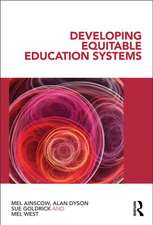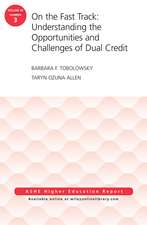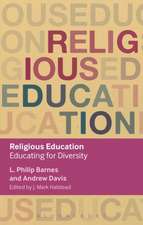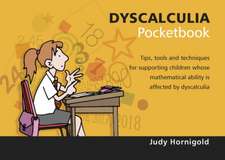Political Pressures on Educational and Social Research: International perspectives
Editat de Karen Trimmeren Limba Engleză Hardback – 31 mai 2016
This book offers an interesting and enlightening insight into the sometimes political nature of research and will appeal to researchers, evaluators and postgraduate students in the fields of education and the social sciences. It will be of particular interest to those studying research methods.
Preț: 847.73 lei
Preț vechi: 1178.15 lei
-28% Nou
Puncte Express: 1272
Preț estimativ în valută:
162.21€ • 176.75$ • 136.69£
162.21€ • 176.75$ • 136.69£
Carte tipărită la comandă
Livrare economică 23 aprilie-07 mai
Preluare comenzi: 021 569.72.76
Specificații
ISBN-13: 9781138947122
ISBN-10: 1138947121
Pagini: 234
Ilustrații: 6
Dimensiuni: 156 x 234 x 19 mm
Greutate: 0.45 kg
Ediția:1
Editura: Taylor & Francis
Colecția Routledge
Locul publicării:Oxford, United Kingdom
ISBN-10: 1138947121
Pagini: 234
Ilustrații: 6
Dimensiuni: 156 x 234 x 19 mm
Greutate: 0.45 kg
Ediția:1
Editura: Taylor & Francis
Colecția Routledge
Locul publicării:Oxford, United Kingdom
Public țintă
Postgraduate and ProfessionalCuprins
Section 1 Contexts surrounding policy, ethics, power and resource 1 The pressures of the political on rigorous and ethical research 2 The problem of the policy agora: how power differentials, methodological naivety and the ideological preferences of policy-makers affect the development of government policy 3 "What works?": From health to education, the shaping of the European policy of evidence 4 Ethical drift in educational research: understanding the politics of knowledge production 5 Play the game or get played? Researchers’ strategies around R&D policies 6 On Relevance and Norms of Science in times of Restructuring: Educational Research in Sweden 7 Is the Emperor naked? Experiencing the ‘PISA hysteria’, branding and education export in Finnish academia 8 Making an impact: politics and persuasions in 21st century Higher Education 9 The impact of managerial performance frameworks on research activities among Australian early career researchers Section 2: Case studies from the field 10 Ethical dilemmas in program evaluation 11 Surfacing the implicit 12 Balancing relationships and intellectual rigour in research for Government Agencies 13 When research, policy and practice disconnect: An educational leadership policy example 14 The Politics and Complexity of Research Utilisation in the Central Education Policy Arena in Taiwan 15 The pressures within: dilemmas in the conduct of evaluation from within government
Notă biografică
Karen Trimmer is Associate Professor with the University of Southern Queensland. With extensive experience in education, her research interests include decision-making by school principals; policy and governance; social justice impacts of policy; Indigenous participation in higher education and quantitative methods.
Descriere
This book draws upon a variety of theoretical and methodological approaches to consider the problems that can arise when research findings diverge from political directions for policy. Chapters explore the personal impact this can have on the researchers, as well as the influence it has on the methodology, and the publication of results.













